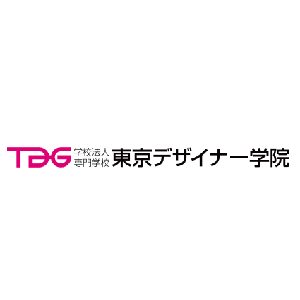对想前往澳大利亚留学的同学来说,悉尼科技大学无疑是正确的选择。院校历史悠久,强势专业众多,选择一个适合自己的专业对于学生们相当重要,下面我们一起来了解下悉尼科技大学专业哪个好的内容吧。
悉尼科技大学简介
悉尼科技大学(University of Technology Sydney),简称“悉尼科大”(UTS),位于澳大利亚金融和经济中心悉尼,是一所充满活力并注重创新的著名公立研究型大学,澳大利亚名校之一。学校拥有独特的学习模式,强大的研究成果和与行业及专业人士合作的良好声誉。为澳大利亚科技大学联盟(ATN)、中澳工科大学联盟(SAEUC)、英联邦大学协会(ACU)的重要成员,是经AACSB认证的一流高校。
在QS世界大学排名2019(QS World University Rankings 2019)中,悉尼科技大学获评为世界五星级高校,位列全球第160名;位居世界年轻大学(校龄小于50年)排名全球第8,澳洲第1。艺术和设计专业位列世界第29位。
悉尼科技大学提供130多个本科和210个研究生课程,涵盖传统和新兴学科,如建筑、建筑环境、商业、通信、设计、教育、工程、信息技术、国际研究、法律、助产、护理、药学和科学。根据全球实践导向学习的UTS模式,学习期间学生广泛开展专业实践。
悉尼科技大学研究生专业设置
【商业管理-人力资源管理】

专业学费:33470.00澳币/年
专业介绍:
Overview The UTS MBA is distinguished from the competition by its practical, vocational orientation and by the open architecture of the course design. All MBA subjects are approved by an industry board that insists on 'relevance to workplace' as a pre-eminent subject design principle. The MBA provides knowledge and skills that are essential for superior management performance. The course provides unparalleled program flexibility. Students design their MBA to match their employment aspirations. A wide range of specialist skills is also introduced through a choice of majors and sub-majors. The teaching staff are drawn from among the finest researchers and university educators around the world, keeping students abreast of current trends and focusing on the global picture. Course aims General management skills develop expertise in strategic thinking, critical analysis, developing and implementing business plans, decision-making under uncertainty, understanding organisational dynamics, motivating others, effective communication, leadership, and promoting change in dynamic environments. Functional skills develop competency in a number of key disciplines including accounting, finance, marketing and human resources management. Specialist skills are introduced in areas such as: international marketing; human resource management; management in the public, private and international spheres; tourism; sport; arts management; engineering management; and information technology. Course intended lear OverviewThe UTS MBA is distinguished from the competition by its practical, vocational orientation and by the open architecture of the course design. All MBA subjects are approved by an industry board that insists on 'relevance to workplace' as a pre-eminent subject design principle. The MBA provides knowledge and skills that are essential for superior management performance.The course provides unparalleled program flexibility. Students design their MBA to match their employment aspirations. A wide range of specialist skills is also introduced through a choice of majors and sub-majors. The teaching staff are drawn from among the finest researchers and university educators around the world, keeping students abreast of current trends and focusing on the global picture.Course aimsGeneral management skills develop expertise in strategic thinking, critical analysis, developing and implementing business plans, decision-making under uncertainty, understanding organisational dynamics, motivating others, effective communication, leadership, and promoting change in dynamic environments.Functional skills develop competency in a number of key disciplines including accounting, finance, marketing and human resources management.Specialist skills are introduced in areas such as: international marketing; human resource management; management in the public, private and international spheres; tourism; sport; arts management; engineering management; and information technology.Course intended lear
Overview The UTS MBA is distinguished from the competition by its practical, vocational orientation and by the open architecture of the course design. All MBA subjects are approved by an industry board that insists on 'relevance to workplace' as a pre-eminent subject design principle. The MBA provides knowledge and skills that are essential for superior management performance. The course provides unparalleled program flexibility. Students design their MBA to match their employment aspirations. A wide range of specialist skills is also introduced through a choice of majors and sub-majors. The teaching staff are drawn from among the finest researchers and university educators around the world, keeping students abreast of current trends and focusing on the global picture. Course aims General management skills develop expertise in strategic thinking, critical analysis, developing and implementing business plans, decision-making under uncertainty, understanding organisational dynamics, motivating others, effective communication, leadership, and promoting change in dynamic environments. Functional skills develop competency in a number of key disciplines including accounting, finance, marketing and human resources management. Specialist skills are introduced in areas such as: international marketing; human resource management; management in the public, private and international spheres; tourism; sport; arts management; engineering management; and information technology. Course intended lear OverviewThe UTS MBA is distinguished from the competition by its practical, vocational orientation and by the open architecture of the course design. All MBA subjects are approved by an industry board that insists on 'relevance to workplace' as a pre-eminent subject design principle. The MBA provides knowledge and skills that are essential for superior management performance. The course provides unparalleled program flexibility. Students design their MBA to match their employment aspirations. A wide range of specialist skills is also introduced through a choice of majors and sub-majors. The teaching staff are drawn from among the finest researchers and university educators around the world, keeping students abreast of current trends and focusing on the global picture. Course aimsGeneral management skills develop expertise in strategic thinking, critical analysis, developing and implementing business plans, decision-making under uncertainty, understanding organisational dynamics, motivating others, effective communication, leadership, and promoting change in dynamic environments.Functional skills develop competency in a number of key disciplines including accounting, finance, marketing and human resources management.Specialist skills are introduced in areas such as: international marketing; human resource management; management in the public, private and international spheres; tourism; sport; arts management; engineering management; and information technology.Course intended lear
【媒体艺术与产品】
学位类型:硕士专业学费:31056.00澳币/年
专业介绍:
悉尼科技大学媒体艺术和生产专业为毕业生进入媒体行业工作提供了很好的途径,也为已经有相关工作经验但想进一步拓展知识和专业技能的人提供了良好的学习平台;本专业为学生提供以下至少一个媒体相关的专业的知识和技能;包括数字媒体、声音、交互和移动图像;在专业的教师指导下,学生可以研究与创建关于电影,视频,声音,广播、数字媒体、性能或安装相关的作品。
悉尼科技大学媒体艺术和生产专业为毕业生进入媒体行业工作提供了很好的途径,也为已经有相关工作经验但想进一步拓展知识和专业技能的人提供了良好的学习平台;本专业为学生提供以下至少一个媒体相关的专业的知识和技能;包括数字媒体、声音、交互和移动图像;在专业的教师指导下,学生可以研究与创建关于电影,视频,声音,广播、数字媒体、性能或安装相关的作品。
【管理学】
学位类型:硕士专业学费:30672.00澳币/年
专业介绍:
悉尼科技大学管理学硕士为学生提供未来工作环境下的高级管理人才所必须具备的专业知识,职业技能与概念性框架;本专业学生将掌握各种各样管理方面的概念性和分析能力;包括业务、公共和非营利部门,和各种各样的专业管理领域;学校还为本专业的学生提供了选修课程,本专业学生有机会更深入的学习一些管理学知识,进一步加强技能,专业实践,专业知识和技能。
悉尼科技大学管理学硕士为学生提供未来工作环境下的高级管理人才所必须具备的专业知识,职业技能与概念性框架;本专业学生将掌握各种各样管理方面的概念性和分析能力;包括业务、公共和非营利部门,和各种各样的专业管理领域;学校还为本专业的学生提供了选修课程,本专业学生有机会更深入的学习一些管理学知识,进一步加强技能,专业实践,专业知识和技能。
【定量金融学】
学位类型:硕士专业学费:33504.00澳币/年
专业介绍:
悉尼科技大学的定量金融专业提供了多种金融学专业技能和能力培训,为毕业后学生成为金融领域专业打下了基础。本专业的学生将有机会学到定量金融学的先进的金融工具,完整的风险管理方法的应用以及如何实现定量金融的策略。
悉尼科技大学的定量金融专业提供了多种金融学专业技能和能力培训,为毕业后学生成为金融领域专业打下了基础。本专业的学生将有机会学到定量金融学的先进的金融工具,完整的风险管理方法的应用以及如何实现定量金融的策略。
【信息技术(Advanced)】
学位类型:硕士专业学费:36220.00澳币/年
专业介绍:
悉尼科技大学的信息技术专业能让学生在技术和管理领域获得全面和深入的理解。本专业有多个方向,可以满足学生的职业发展的需求。当今时代拥有IT知识和技术是至关重要的,本专业能加强学生对当代商业环境下的信息技术和交流技术的理解,并且能够让他们应对IT行业的挑战。 Major: 业务信息系统 网络互连 数据分析 互动媒体 软件开发 选择(没有指定专业) 业务信息系统网络互连数据分析互动媒体软件开发选择(没有指定专业)
悉尼科技大学的信息技术专业能让学生在技术和管理领域获得全面和深入的理解。本专业有多个方向,可以满足学生的职业发展的需求。当今时代拥有IT知识和技术是至关重要的,本专业能加强学生对当代商业环境下的信息技术和交流技术的理解,并且能够让他们应对IT行业的挑战。 Major: 业务信息系统 网络互连 数据分析 互动媒体 软件开发 选择(没有指定专业) 业务信息系统网络互连数据分析互动媒体软件开发选择(没有指定专业)
以上就是为大家介绍的关于悉尼科技大学专业介绍有哪些的内容,希望对你有所帮助。










